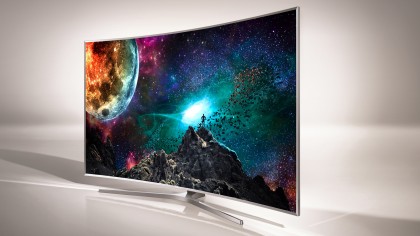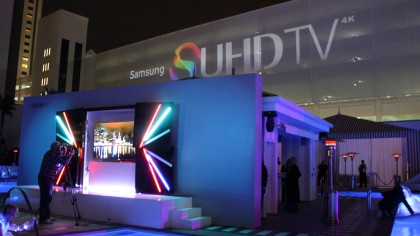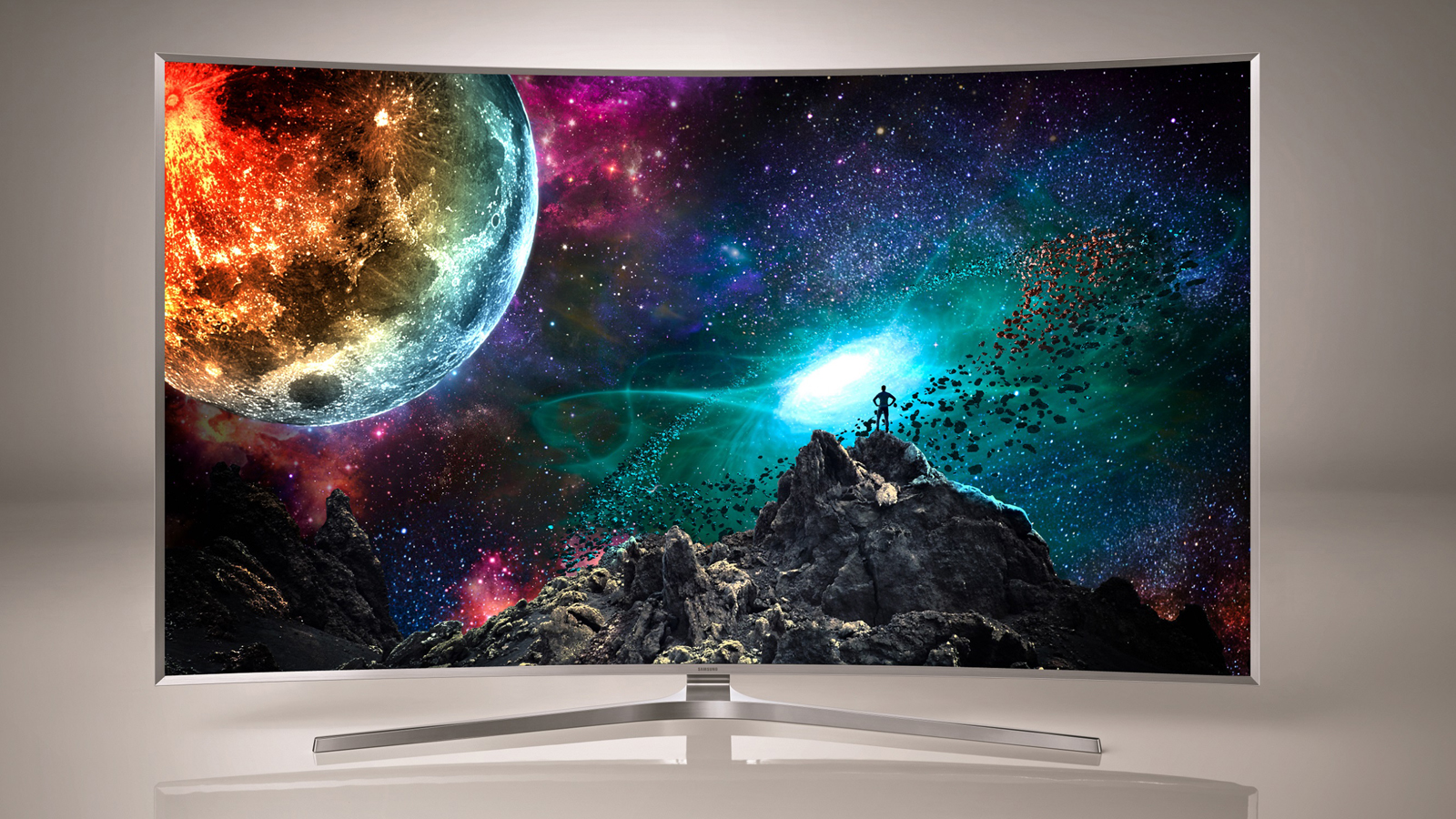Early Verdict
Samsung's first SUHD TV is wildly impressive and even has the numbers to support it. In spite of that fact though there are still too many unknowns (ahem, price) to guarantee that it's worth its inevitably expensive price tag.
Pros
- +
Stunning picture
- +
Measurable improvements
- +
Ultra-slim bezel
- +
Tizen-developed Smart OS
Cons
- -
Refresh rate
- -
Going to be expensive
Why you can trust TechRadar
Five years ago, the television market was fought in inches. It generally came down to who could make the largest panel, who could make it at a reasonable price and, most importantly, after all that stretching which one looked the best.
At CES 2015, Samsung's not fighting a war with inches. It's fighting it in nanometers.
Why? Quantum Dot technology, the newest buzzword in the home entertainment world.
For the plain and simple, QD panels are sharper than standard LCD LED but not quite as crisp as OLED.
Quantum Conundrum
The science behind Quantum Dot technology lies within nano-crystal semi-conductors that range anywhere from 2-10nm in size. Nano-crystals, for the record, have been around since the '80s, but are just now making their way into your home theater system.

Why is something from the 80s making a comeback? Simple. Quantum Dot gives TVs a 30% boost in color accuracy and 64 times more color gradation to every pixel than standard LCD LED sets.
The panel itself, at least on the upcoming JS9500 model recently shown to TechRadar at a pre-showing event, is 10-bit with DCI-P3 standards and "makes color adjustments at twice the normal speed of other UHD screens," says Bill Lee, vice president of Television Product Marketing at Samsung.
Simply said, the color on it was downright spectacular as shades of reds, greens, blues and blacks lit illuminated the outdoor venue. It's getting harder and harder for UHD to impress me, but the JS9500 still found a way.
Just be sure to note that Lee said the TV will "make color adjustments," and not "refreshes at" twice the normal speed. Just if and how Samsung's latest innovation keeps up with the on-screen action is still a real discussion point and wasn't something shown during press demos.
Content
But the question remains: will there be enough 4K content in 2015 to warrant buying Samsung's inevitably expensive set? Hopefully, thanks to Samsung, yes.
Samsung has made specific arrangements with major media players Disney and Fox to remaster movies - including last year's award-winning The Life of Pi - in 4K, a perfect fit for your brand-new panel. The JS9500 will also be one of the first non-Sony TVs to support PlayStation Now.

If that's not enough, it'll be powered via an all-new open-source OS developed by Tizen. Not only will the typical smart-OS functions be there, but the TV will use low-power Bluetooth to search and sync up to five Samsung mobile devices without you having to lift a finger.
An example Lee gave me during an interview was setting an alarm on your phone that will play through the TV. Of course pushing content from a phone or tablet to your TV will be a simple task and Tizen OS will work as a quasi-personal assistant when not directly serving you the latest episode of Game of Thrones.
Early verdict
While the specs and first impressions certainly made this one the best panels on the show floor, unlike its stunning picture, Samsung's SUHD gameplan is still a little hazy. Yes, it's a definitive upgrade to last year's standard 4K panels - OLED models excluded, of course - but just how much will the upgrade cost?
Regardless of the answer, the Samsung JS9500 Curved 4K TV will launch later in 2015 and will come in 65, 78 and 88-inch variations.
Nick Pino is Managing Editor, TV and AV for TechRadar's sister site, Tom's Guide. Previously, he was the Senior Editor of Home Entertainment at TechRadar, covering TVs, headphones, speakers, video games, VR and streaming devices. He's also written for GamesRadar+, Official Xbox Magazine, PC Gamer and other outlets over the last decade, and he has a degree in computer science he's not using if anyone wants it.
What is a hands on review?
Hands on reviews' are a journalist's first impressions of a piece of kit based on spending some time with it. It may be just a few moments, or a few hours. The important thing is we have been able to play with it ourselves and can give you some sense of what it's like to use, even if it's only an embryonic view. For more information, see TechRadar's Reviews Guarantee.

